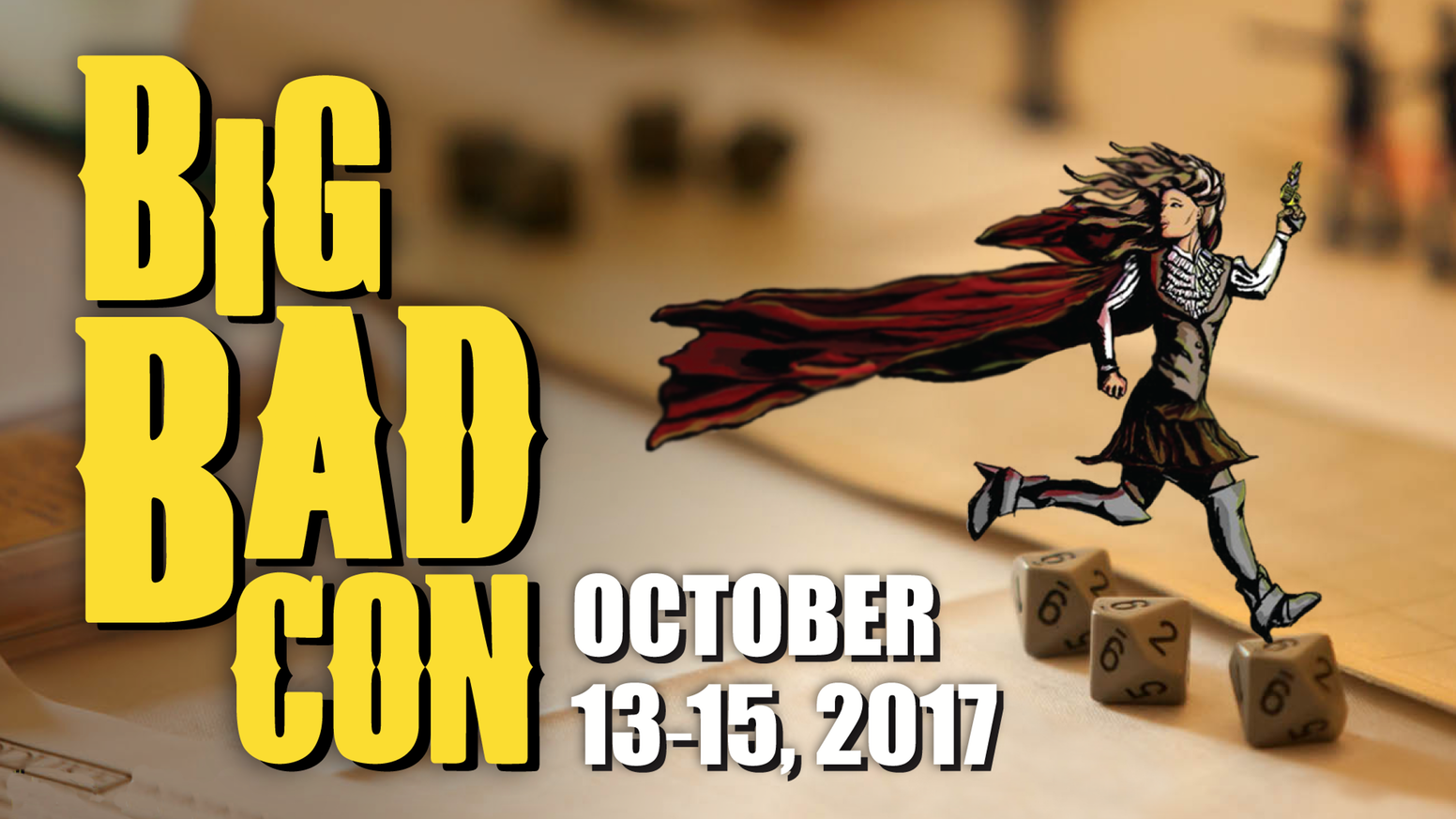We had the wonderful opportunity to host an instructional improv workshop at this year’s Big Bad Con. It was a pleasing experience to go full-circle after spending time with Conspire, a game heavily-based on improv comedy philosophy. The group was invested in the class and laughed a ton. They also validated some assumptions I had about teaching such a class to a group of experienced role-players. I want to break down the workshop and highlight skillsets gamers could use to take their experience to the next level.
Bigger Badder Con-ier
The CPG convention tour enters its next stretch with this weekend’s Big Bad Con. We are visiting this RPG and story game convention for our second time. We hope to see all our old friends and new fans this weekend in the Bay Area.
The Game within the Game
There is an improv concept called “The Game within the Game”. Any improv has some format the performers are following; a game they are playing. While they are following the rules and guidelines of their scenario, natural patterns emerge. The audience may find something funny once, but by repeating and escalating the joke, it gets exponentially funnier. As an example, a performer could say a brand name and nod to the audience like it is a paid endorsement. Another performer could run with that and promote a different brand, complete with marketing slogans. Eventually, full commercials start dominating the scene until the meme gets exhausted and the scene progresses. Recognizing what tangents can be expanded upon is critical to elevating scenes. The same is true of a game master and their players telling a role-playing story.
In the recent Game Master Advice supplement we released, we harped on understanding what players want from scenes. As a game master, you need to look at your group during play and analyze their emotions. Figure out what makes them excited, giddy, stressed, frustrated, bored, and determined. This does not necessarily imply you should put immediately your players in a wide variety of scenarios to gauge their reactions. Start telling your story how you need to, but be open to changing over time.
Say your players enjoy a combat scene. That is a clear cue to add more fighting, but really analyze why they enjoyed the scene. If the players were emotionally invested in defeating the opposition, spend time justifying every fight. Building your characters up to be knocked down becomes the game. Subsequent antagonists become more evil and worthy of death. What if the players liked that first fight because they were mentally engaged by the tactics? If the players used a lot of creative strategies and intricate mechanics, make battles more complex. The game becomes finding and solving the puzzles within the battlefield.
As with the improv scenes, the value added by playing the sub-game decreases after a certain point. Ramping up the emotional stakes of every fight could find players not caring about the current enemy since the next bad guy will be worse. Requiring crazy tactics in battle may stress out players if you outsmart them too many times. The GM must know when to escalate the game and when to stop it. As a rule, always leave players wanting more. The campaign’s last session should be every sub-game coming together in a crescendo of entertaining memories, not an overdone slog.
Alternatively, instead of naturally ending your recurring games, consider subverting them. Hype up your villain as evil incarnate and then reveal the noble intentions under their wicked surface. If players have been an amazing espionage team, have someone out-spy them. These twists are powerful storytelling tools, but potentially clichéd. They only work if the players are responsive and expecting the pattern to continue. Twists could also become games-within-the-game as well. If the players are double-crossed by their benefactors, have the other side betray them as well. Turn the campaign into a muddled web of lies. There’s amazing reward in creating something worthy of an eccentric conspiracy theory, if you keep the players along for the ride.
The players are your audience. Respond to them responding to you. Recognize the high points and keep them coming. The ability to have these sub-games within a larger game comes naturally to role-playing. Take advantage of that and use the medium to its full effect.
--Alex


